Immigrants have traveled from Ireland to America for over two hundred and fifty years. This traffic was usually thought of as one-way, flowing in a westerly direction across the Atlantic ocean for centuries.
Today I wish to challenge that assumption!
As I read more stories of the Irish in America, I have come to realize, not every immigrant remained in their newly adopted land.
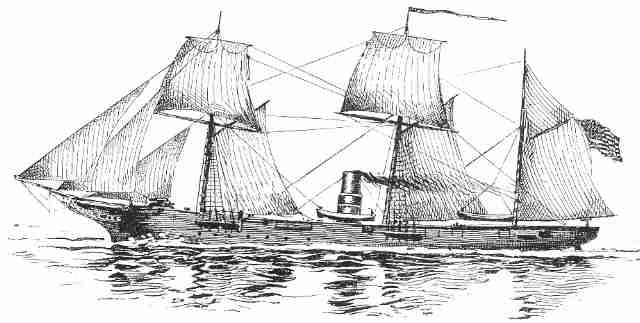
Table of Contents
Frank McCourt's Return to Ireland
Frank McCourt's book Angela's Ashes tells his parents' tale of immigration to America, where he was born. Their return to Ireland was prompted by the unexpected, tragic death of their daughter in 1935.
They left New York as America tried to emerge from the Great Depression, only to suffer further impoverishment in Ireland. As I read this beautifully crafted memoir, I could not help but question McCourt's parents' decision to leave America.
Until I read this book in 1997, I always considered an immigrant's return to Ireland, a very rare occurrence.
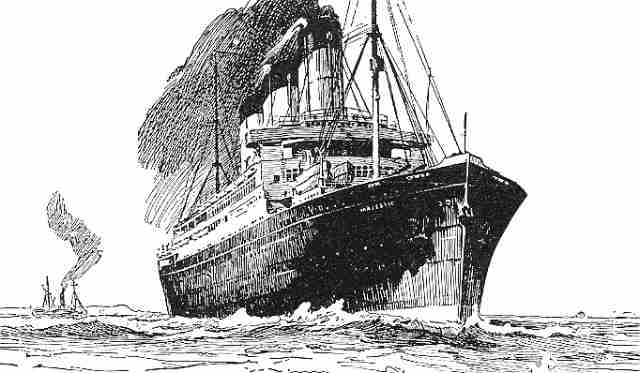
The Family of Irish Poet Padraic Colum
During research for my post on The Old Woman Of The Roads, a poem by Padraic Colum, I discovered the poet's father spent three years working in the United States.
The young Padraic, his mother and siblings remained in Ireland while his father joined the Colorado gold rush.
Unlike most immigrants, the elder Colum returned to Ireland in 1892. The norm would have been to send passage fares for his family to join him in America.

My Great Grandfathers' Return to Ireland From America
I started to wonder how frequently Irish immigrants returned to the land of their birth, choosing an Irish life over the possibility of achieving the American Dream.
Was the road to American success not paved with gold as they originally envisioned?
I did not need to look beyond my own family to find evidence of bidirectional immigration.
When I discussed this topic with my parents I learned two of my great-grandfather's spent time in America in the late 1800's, before returning to Ireland to live out their lives.
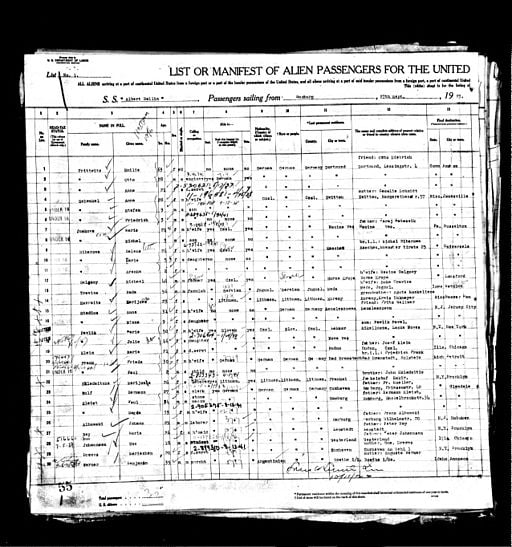
My maternal great-grandfather Henry Browne was born near Skibbereen, County Cork. He spent close to twenty years working near Salem, Massachussets, before returning to Ireland to marry my great-grandmother, Margaret Leahy in the early 1900's.
I have no details of his American life. He returned to farm the family land and to marry, when many might have thought him a confirmed bachelor. The motivating factor for his return was land. No matter how far from home an Irishman may wander, the thought of family land being lost forever, will always tug on his heart strings.
My paternal great-grandfather, William Geary was born near Kildorrery, Co. Cork in 1852. He spent close to a year in the United States in the late 1880's.
The purpose of his trip is a family mystery. In his absence, his wife Teresa Carver and my great-grandmother worked the family farm with great efficiency, creating prosperity the family had never before known. She was probably delighted not to have to cover her husband's bar tab, while he was off gallivanting the world.
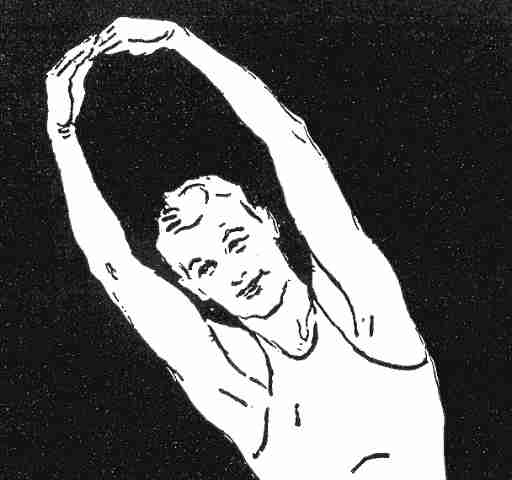
We thought perhaps he was part of an Irish group of athletes from the newly formed Gaelic Athletic Assocation, who traveled to America on an unsuccessful fund raising trip. This "American Invasion" was a display of Irish games and athletics for Americans organized in 1888.
My great-grandfather was a weight lifter, a founding member of the Kildorrery GAA, with a liking for a drink or two, and a wander lust he could never quench.
Upon further investigation, his name did not appear on the list of athletes who participated in the GAA tour. The dates of his absence did not quite coincide with this trip. Where he went, what he did, or whatever notion took him across the Atlantic ocean remains a mystery to this day.
All we know is that he returned, and took up life where he left off.

How Often Did Irish Immigrants Return To Ireland From America?
And so my question today, is how often did immigrants return to Ireland, after spending some time in America?
If you have an immigrant tale of two-way traffic between Ireland and America, I would love to hear it. Please feel free to share your family stories here on this blog.
If you think you may have a story that might be great material for a blog post, just leave a message in the comment section, or send me an e-mail via my contact page.
If I ever find out where my great-grandfather visited in America, I will be sure to share the story with you.
Thanks for following my recipes and ramblings.

Slán agus beannacht,
(Goodbye and blessings)
Mairéad -Irish American Mom
Pronunciation - slawn ah-gus ban-ock-th
Mairéad - rhymes with parade
Here are some more recipes and ramblings you might enjoy...
- Brave Hearts By Jean Mahoney - Book Giveaway
- Irish Immigrant Song Tugs On The Heartstrings
- The Poetry Of Joan Cusack Handler
- Introducing The Baltimore Irish Railroad Workers Museum Plus A DVD Giveaway
- Hay Foot, Straw Foot
- A Tribute To My Irish American Mom
- Famine Memorial At Ireland Park, Toronto
- A Journey of Discovery, Remembrance and Connection












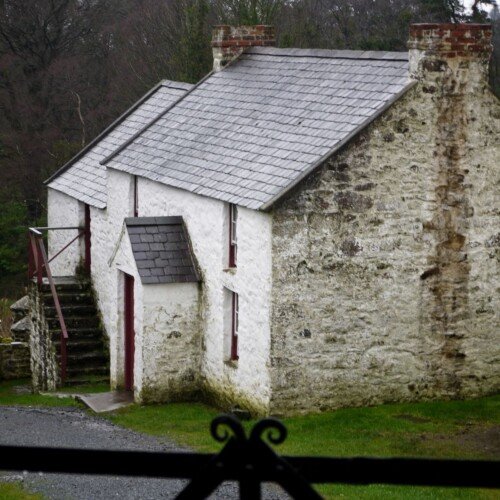




Martine Brennan
My grandmother, Catherine Hurley, went to the States in the 1920's and returned about 10 yrs later. She said she 'never settled'. I myself went first to Birmingham, UK and then London, UK and returned after 10 yrs.
Irish American Mom
Martine - It took me over twenty years to really "settle" in America. I understand how your grandmother "never settled", even after ten years in America. When you are born in Ireland, it is always difficult to think of another place as "home".
Mairead
Karen
Very interesting topic! Was just thinking about it today and debating the idea with my aunt. I had recently started to realise that the old narrative of Irish never seeing their homeland again wasn't necessarily true. Thanks for these examples!
Irish American Mom
Hi Karen - I'm so glad you found this little piece to be thought provoking. It truly is an interesting topic, and since I wrote it, I have been amazed by how many people have said that their relatives also returned to Ireland in the 19th century.
All the best,
Mairéad
Cheryl Barker
Interesting to think about. It does seem the pull of one's homeland would be very strong when you stop and think about it.
Irish American Mom
Cheryl - Mother Ireland tugs on our heart strings forever, making us feel guilty for leaving her.
Mairead
Niamh
My Great grandfather was born in New York, but his parents came back to Ireland too. Good thing too, because I wouldn't exsist if they hadn't. Funny how things happen.
Irish American Mom
Niamh - it is amazing how many people have told me about their parents or grandparents returning to Ireland from America in the first part of the 1900's. My Mom told me our neighbors grandfather returned and I have two granduncles that also returned. It must have occurred far more frequently than realized.
B.
I'm very late to this post but I was searching Irish immigrants who went to America but then returned to their homeland. I just discovered that my 2nd great grandfather took his family to Pennsylvania somewhere between the years of 1889 to 1896 after their first child was born, they then had two more children then the whole family returned to Ireland and six more children were born. It's quite fascinating to me that they would undertake such a big move, twice, within seven years. I can't seem to uncover a reason but I'm sure there's one there somewhere.
Irish American Mom
I share your fascination with these tales of Irish immigrants to America returning to Ireland at the end of the 19th century. I hope someday you uncover the mystery behind your family's transatlantic crossings. I have no idea why my great-grandfather came to America for a year or two in the late 1870's, leaving his wife and family behind. Someday, I would love to unravel that mystery too.
Best wishes and thanks for stopping by my website and adding to this discussion.
All the best,
Mairead
NZ Irish
I came across your site while googling about Irish people going to and fro to America. I have just discovered that this happened in my family and couldn't understand how that could happen, as they were all so poor - how did they afford the travel? How much did steerage class cost, does anyone know? Or perhaps the American government paid all or part of their fare? I never knew that my grandfather went to America (Lowell Massachusetts) in 1911 where his sister Jane had settled in 1900. He must have returned to Ireland because he married my grandmother in Ireland in 1917; they eventually moved to Scotland in 1922 with their 4 children. Jane had herself made two journeys to America, according to ships manifests - first time in 1895 she traveled with a friend to Boston from Derry, and then she must have returned because the second time in 1900 she traveled with her brother from Liverpool to live with their cousin. They both stayed in America and descendants are still in the Boston area. I was always puzzled by Frank McCourt's biography, where the family seemed to travel back and forth when they were so poor. I would like to know how they managed to do this. Thanks for the blog - very interesting 🙂
Irish American Mom
Thank you so much for letting us know about your family's travels between Ireland and America. It amazes me to hear from others whose relatives also returned to Ireland after sometime working in America.
I checked out ticket prices for the Titanic and a third class ticket cost on average £7 in 1912. That was quite a bit of money back then, so it really amazes me how many of our ancestors did travel back and forth across the Atlantic.
Thanks for stopping by,
Best wishes,
Mairéad
Jane McFarlane
My grandfather and four brothers emigrated to the USA in the early part of the 20th century. My grandfather and a brother returned to Ireland after they saved enough money to buy land. My father and brother came to the USA in their early twenties in the 1930s. My father returned to Ireland after 3 years.. My mother, a widow, came to the USA with her children, in the 1950s and returned home 30 years later. In the area I came from, I know many who emigrated to the USA, Australia, New Zealand, and Canada only to return home, sometimes after retirement and sometimes before.
Irish American Mom
Hi Jane - Thanks so much for sharing your family story with us. So many of your family left Ireland, only to return to Ireland to fulfill their Irish dreams. It's amazing how many stories of returning immigrants there are in Ireland.
All the best, and thanks again for stopping by.
Mairéad
Seán Mór
Hi, Mairéad...
After doing some further research, it seems that my gg grandparents lived in America for a short while, but then decided to return home. My g grandfather was born in Kildare in 1888, and when he was old enough, he also went to America for a short time. After spending a few years over there, he decided to return, and then moved to Scotland, where he met my g gran who was from Meath. They settled in the town where I was raised, and the rest is history. 🙂
Le meas
Seán Mór
Irish American Mom
Hi Seán Mór - Thanks for adding your family's stories of travel over and back between Ireland and America and onwards to Scotland. I truly think far more people than we may believe, returned from America during the late 19th century. I always enjoy reading comments that share a little piece of history. I checked out your website - thanks a million for the link. I'll be reading some more of your poetry once I get a spare moment. Your work is beautiful.
Best wishes,
Mairéad
Australian Irish Descendant
Hello.
My family did this also between Ireland and Australia. He immigrated to Australia with his wife and had a family in Australia but would often revisit Ireland even when his wife was due to give birth. I suspect he was taking money back to Ireland to relatives there as apparently as much as one third of Ireland's money in the 1870's came from relatives abroad. I also suspect he may have been politically involved in trying to bring about independence for Ireland but I have no firm proof of this at this stage.
Irish American Mom
Hello from Kentucky - Thanks for sharing your story. Your Irish ancestor must have felt a deep draw to his homeland to leave his pregnant wife. Irish women were expected to take care of themselves even towards the end of pregnancy. In our family the story goes that my great-grandmother was a far more industrious farmer than her husband, and while he was off galavanting across the US she never had so much money in her pocket.
It's incredible to think how much money was sent to Ireland around the 1870's. And I believe much of it was used to pay for passage to America and Australia for other family members, and also to support the Fenians. Wishing you every success with your family history search and do let us know if you ever discover a good story behind all those trips to Ireland so many years ago.
All the best,
Mairéad
Helen Butler
I've just been reading Stephen McGann's book and his forebears went to the US for a few years then returned home, only to subsequently emigrate to England. In my family history search we have found others who did the same, bringing an American wife back to England. My great great gandfather's family had come to England during the famine, wandering round the country following work, he went off the America, were not sure when and when he came back ,he did have a son who stayed in England with his grandfather who finally settled down. We suspect that he left under a cloud, but the pull of family must have brought him back, but not with pockets full of money. I suspect the lack of any welfare system might have had something to do with it, and family. At least in England he had family to help h as he got older.
Irish American Mom
Hi Helen - thank you so much for sharing your family story of movement between Ireland, England and the United States. There is an immigrant's quotation posted at Ellis Island that goes something like this... "not only were the streets (of New York) not paved with gold, but we discovered we were expected to pave them." I think many immigrants to the US in the 19th and 20th centuries were faced with hard work and labor. For many life on the other side of the Atlantic was no better, or maybe even worse than the life they left behind. Family was the only social safety net for many, especially as they aged. I' glad to hear your great great grandfather had family near when he grew old. Thanks so much for stopping by.
All the best,
Mairéad
Veronica Alweiss
Dear Mairéad,
I discovered that my great x2 grandparents came to the US around or before 1870 (don't know when or if they were together) had their first child, landed on the 1875 NY census and then were back to Athy, Kildare by 1876. They had 4 more children in Athy.
I have a question - I am working with a local genealogist and she's convinced that the family would have challenges STAYING in Ireland after their return because the husband, my great x2 grandfather was naturalized in the US. Do you know what the laws at the time allowed for? I am trying to find out what happened to my great x2 grandfather.. did he return a 2nd time to US or die in Ireland (?)
We only know that my great grandmother and kids in tow RETURNED again to NYC by 1883.
Would there have been local government pressure in Kildare for them to go back, given their US naturalization? Also, we know for a fact that my great x2 grandfather was sick at this point - ultimately dying from long term affects of the BENDS. He as a dive building the Brooklyn Bridge.
Thank you!
Veronica
Irish American Mom
Hi Veronica - Today many, like me, are lucky enough to hold dual citizenship between Ireland and the US. There was no such thing back in the 19th century. At that time Ireland was ruled by England so English law would have held sway. I do not know the details about these laws, but perhaps a reader with more knowledge may come across your comment and be able to throw some light on this subject. My great grandfather returned to Ireland at the end of the 19th century and I believe he was a naturalized US citizen. However, he returned to West Cork which is much further away from Dublin than Kildare. There may have been stricter enforcement of the laws closer to the capital. Thanks so much for sharing your family story. I hope to find answers to your questions some day.
All the best, and thanks for stopping by.
Mairéad
PHIL GAVIN
Dear Mairéad,
I'm not sure this site is still open, but here goes anyway
My Grandfather was born on a ship in1867 landing in New York with his very young parents. My Great Grandfather was 17 years old and I'm pretty sure his wife was not much older. For years I've also searched for some information on why they would have returned back to Ireland. I have documentation that they settled in Newport, County Mayo and had three more sons, My grandfather and two of his brothers returned to America as 'young' men and stayed.
I have come to realize that life in America in the late 1800s and early 1900 was not very nice for some and I wonder if that is why they went home
Irish American Mom
Hi Phil - Thank you for sharing your family story. Life for the Irish was not easy back then. It was the time when many employers had the philosophy "no Irish need apply." Many people have commented here or contacted me via email to let me know that their ancestors also returned to Ireland from America back in the 19th century. I always remember a quotation from an Italian immigrant posted in Ellis Island that said: 'I came to America because I heard the streets were paved with gold. When I got here I found out three things: first, the streets weren’t paved with gold; second, they weren’t paved at all; and third, I was expected to pave them.'
Thanks for stopping by and joining our discussion about this Irish American immigrant tale.
Thanks for reading my recipes and ramblings.
Best wishes,
Mairéad
Seán O’Leary
Hello,
My paternal grandfather from West Cork, left Ireland in 1887 arriving in Boston in April of that year. He returned to Ireland 14yrs later in 1901, disembarking at Cobh (Queenstown) on Christmas Day. A month later he and my grandmother were married. He married into the farm that she had inherited. I am drawing a complete blank as to his life during the 14 years he spent in the States. Could he have worked ‘under the radar’? He didn’t marry or have children or die while there so he doesn’t appear in any official documents. The most relevant census was lost in a fire and I cannot find him in the 1900 census. Maybe I don’t know how to work it properly. Family lore says that he worked in the Boston area. On the ships manifest on the return journey he states that he worked as a cow man. Could he have worked on a dairy farm in the Boston hinterland? Could anyone suggest how I might go about finding out about his life in the USA. Have thoroughly enjoyed reading other people’s content. Thank you.
Irish American Mom
Hi Seán - Thanks for stopping by to read my post about Irish immigrants returning to Ireland from America. Your grandfather's story sounds similar to my great grandfather's tale. My great grandfather from near Castletownshend lived and worked in the Salem area of Massachusetts. I know that many people from around Skibbereen went to this area. You may wish to look at this area to try to find your grandfather. I did a quick search and over 200 people with the last name O'Leary were listed in Salem, Essex County, Massachusetts. https://www.ancestry.com/search/collections/7602/?name=_O%27Leary&birth=_salem-essex-massachusetts-usa_4397
I hope this helps a little. Feel free to send me an email on mom@irishamericanmom.com if you would like to let me know what part of West Cork your family came from. If you are from around Skibbereen then Salem may be a possibility.
All the best,
Mairéad
Barbara D
I too have recently discovered a similar story. My great-grandmother was eldest of 8; although she had 2 brothers, she and her husband "inherited" the farm (near Macroom in Cork). All of her siblings seem to have emigrated to the Boston area between 1870-1880's; one of the brothers then apparently returned at some point as he appears in the 1901 and 1911 Irish census records, living with his nephews and nieces on the farm. Sadly, one of the sisters buried 2 babies in the Boston area, and seems to have returned to Ireland where she herself died unexpectedly in 1879. I'm not sure but assume that her husband and a surviving son (who was himself born in Boston) went back to Ireland with her, but wonder how to check that. Did you find your information about your grandfather's return to Ireland in records on line? Some years after her death, the son and father seem to have reversed themselves back to the US where they appear in the 1900 census. I never realized how often this sort of thing must have occurred.
Meanwhile, as to "cow man"....the part of Boston known as Brighton was the site of a huge cattle market and abattoir around that time. Perhaps your grandfather was employed there.
Irish American Mom
Hi Barbara - Your family story is so interesting, with so many members of your family making the journey over and back between Ireland and the US. The comments on this blog post are so interesting and add to our social history knowledge of the Irish in America. Thank you for adding to this discussion, and for passing on the tip to Seán that there was a huge cattle market in Brighton. That little piece of information may unlock his family mystery.
Thanks again for stopping by.
Best wishes,
Mairéad
Bonnie Webster
My paternal great-grandfather, Thomas Joseph Burke, immigrated from Ireland to the US, probably in the 1860s. He married another Irish immigrant, Ann McGrath in 1865. They lived in St Louis, Missouri and their first 2 children were born there, before the family moved to a farm near Connor Station, Kansas. (Now part of Kansas City, KS.) They had 4 more children.
As I grew up, it was a family mystery what happened to Thomas. He died away from home under mysterious circumstances. My Dad even thought he might have heard that Thomas died during a return trip to Ireland, but I thought that was unlikely, not realizing that return trips were more common than many of us thought.
I found digital copies of newspapers from Wyandotte county, where the Burke farm was, and was unpleasantly surprised to find that in 1892, Thomas was charged with severely beating his wife! And 2 of his teenage or young adult children testified against him! (He, of course, claimed it was all a "put up job" against him.)
By 1895, according to the newspapers, Ann had filed for divorce and the court, noting that Thomas was a prosperous farmer, ordered him to pay her alimony while her case proceeded.
I don't know if the divorce actually went through, because the county clerk told me that volume of records, from that time, was missing. Accounts of such a scandal certainly didn't make it down to my generation! No wonder my Dad's mother and his aunts and uncles didn't really talk about what happened to Thomas.
The 1900 federal census is missing for most of the US, but in the 1895 KS state census, there's a Thomas Burke of the right age, living without family (though he said he was married) in a rooming house, in Wyandotte county. I think, but don't have proof, that may be my gr-grandfather. I could not find Ann and the grown kids in that census. But they may have already moved back to St Louis, Missouri, because that's where they were by the 1910 federal census, all living together. (No Missouri state census, like in Kansas.) I followed the kids and Ann (a widow, by 1910), through censuses and other records and found their eventual fates, but couldn't find what happened to Thomas.
Finally, I found a blog that had a list of letters from people in the US to the US consulates in Ireland, from the early 1900s. Among them was a 1910 letter from William Burke inquiring about his father, Thomas, who he'd been notified had recently died in Ireland! There were enough details, just in the sample of the letter, that I went on to order a photocopy from the national archives. The additional details in it have me 99% convinced that was my great-uncle asking about my great-great grandfather.
With the information of when and where Thomas died, I was able to find out a little more. (With some help from people I corresponded with.)
He must have reverse-migrated between 1895 and 1909. In October 1909, he drowned in a "drain" (a farm irrigation ditch, as far as I can figure out). At the time of his death, in his 60s, he had a farm in Cloongowla, Ballinrobe, County Mayo. He left his estate to Patrick Leonard. (I don't know what relationship was there, except the hard-to-read photocopy of Thomas and Ann's church marriage listed Thomas's mother's name as Mary Lenard or something like that.)
So that's what happened to Thomas Burke, who did die in Ireland, even though he'd lived most of his adult life in the US. I still don't know where he's buried, there.
Sorry this is so long, I'm not very good at editing.
Irish American Mom
Hi Bonnie - Thank you so much for taking the time to share your intriguing family story. You have done an amazing job piecing together clues to the past. I really appreciate stories like this. I believe we have an opportunity to record some of our Irish American social history through stories like that of your great grandfather. Thank you for generously sharing it with us hear. Back in the 19th century life was not always easy, especially for Irish immigrants. They moved further afield than New York and the eastern shores of the United States. Many of their stories were hidden, since they so longed to assimilate and not be known for being difficult or trouble makers. Life was often harsh in the US, and many did relocate back to Ireland. I'm happy for you that you could trace your great grandfather back to County Mayo. He suffered a tragic end, but it is important to record his legacy, his achievements and his struggles. Thank you so much for joinin in our discussion.
All the best,
Mairéad